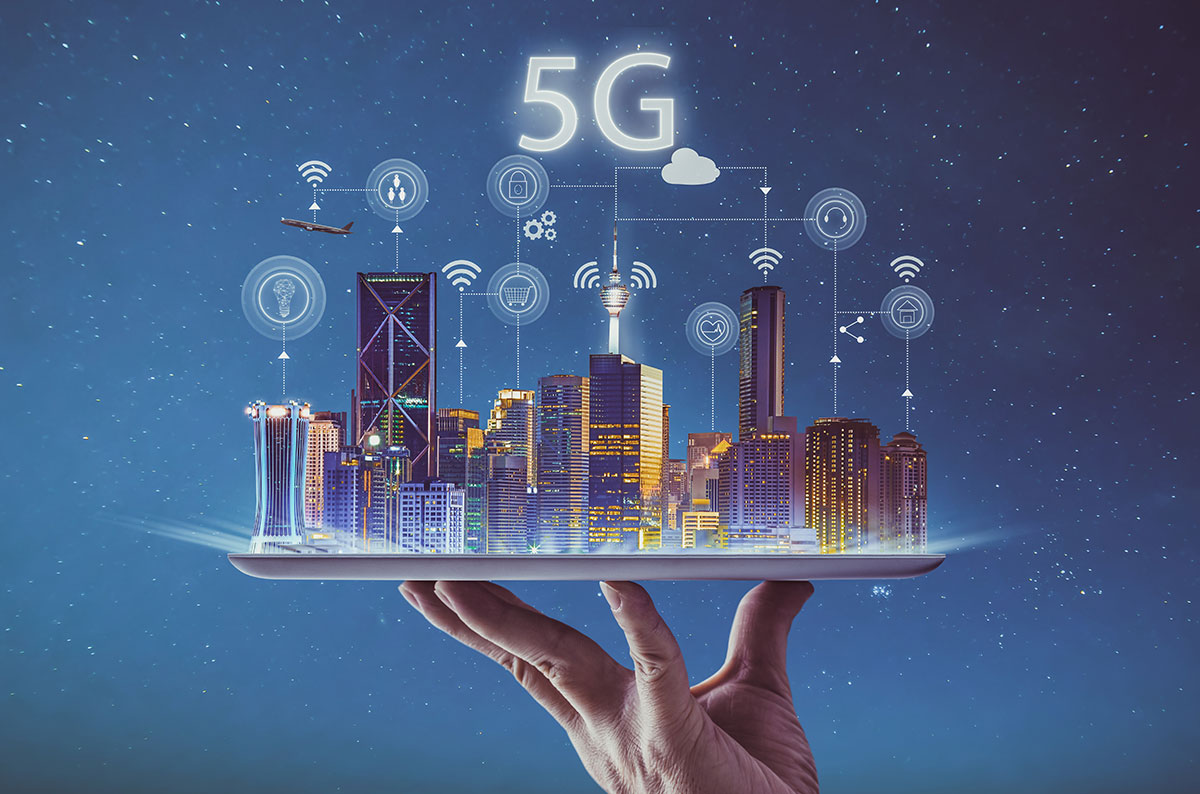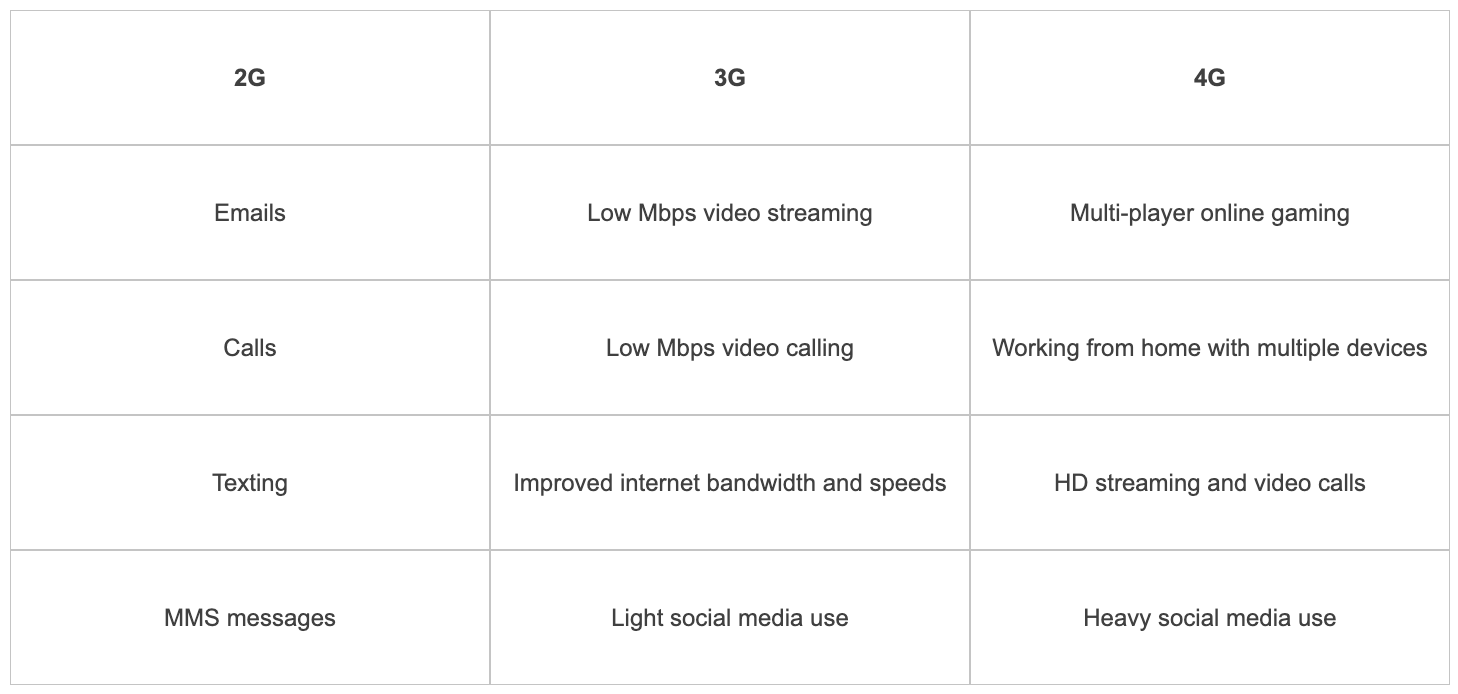5G in the US: The latest updates for home internet shoppers

Amanda Morgan

Every few years or so, the internet world introduces consumers to a new technology that promises faster, more reliable speeds and —in 2021, the new golden child of high-speed internet is 5G. Smartphone companies like Apple and Samsung have been releasing new models with 5G capabilities, but shoppers are waiting in anticipation for their network and home internet providers to catch up. HomeLinkd shares what you need to know about 5G home internet and the pros and cons of choosing it.
What is 5G?
From 2010 –2011, the US released 4G, which later became known as LTE. Now, roughly a decade later, 5G internet has become the latest advancement in wireless mobile phone internet.
It may sound like a totally new kind of internet technology, but it is largely what mobile phones have already been offering –except much, much faster. It’s the fifth and most up-to-date generation offering faster speeds, lower latency and new possibilities for technological growth.
5G’s generational history

What you need to know about 5G’s growth in the US
When we say it’s faster, we’re talking Gigabytes faster
5G speeds reach 10 Gigabytes per second and beyond —While the typical speed for 4G LTE is between 150 –300Mbps.
That makes 5G roughly 67 times faster than 4G. However, before you start looking for 5G packages with 10Gbps speeds immediately after reading this —we should probably mention that is it a projected goal for the near future and not something available at this very moment. Currently, 5G speeds are sitting at approximately 1.1 Gbps, which is still faster than 4G.
5G home internet is still in development
Although many of Apple and Samsung’s latest phone models are 5G-capable, this doesn’t mean the same level of development has taken place for 5G home internet.
Major mobile carriers who also provide home internet like AT&T will likely be the first to implement 5G home internet, as they’re already developing 5G for mobile phones.
4G LTE still has a dominant hold on the wireless internet market and will still continue to operate as per normal when 5G grows larger.
Who offers 5G?
At the moment, AT&T, Verizon and T-Mobile offer 5G for your mobile phone. Verizon also has two 5G home internet plans, but this isn’t available in every state.
Pros and cons of 5G home internet
Pros:
1. Ultra-fast internet that matches –and will soon beat –fiber internet. Right now, internet speeds max out at about 1,000Mbps but with 5G, speeds will get up to 10Gbps.
2. Lower latency, meaning fewer and shorter delays in data being transferred back and forth from your devices.
3. Available right now for mobile phones, although not all mobile phones are 5G-capable.
4. Increased capacity and more bandwidth. Increased capacity means more people and more devices will be able to connect to the internet without it becoming a problem, which is ideal for large offices and buildings, or jobs that require heavy internet use.
5. A positive effect on the community with new capabilities to reach underprivileged schools and communities in rural areas —closing the digital divide.
5G isn’t just innovating mobile phone use and home internet, it’ll spread to healthcare, engineering, online retail, entertainment and manufacturing.
Cons:
1. At the moment, 5G is more expensive than 4G LTE. However, over time, the price will likely drop.
2. It is not widely available across the US, and is only accessible right now in major cities like Los Angeles, Miami, Las Vegas, New York City, Houston and Atlanta.
3. It is currently still a mostly-mobile internet choice, rather than a home internet choice. Internet providers are only planning to have it available for homes in 2024 –2025.
4. Because 5G is so much faster than other internet types, it could lead to devices draining data and battery a lot faster.
5. Cybersecurity may be an issue to begin with as 5G providers expand the network, and it may initially be vulnerable to hackers.
Learn more about your broadband options with HomeLinkd
5G is certainly something to be excited about, and HomeLinkd is looking forward to bringing you more updates and information as 5G grows across the US.
Compare internet types and packages that work best for you using our useful comparison table.










